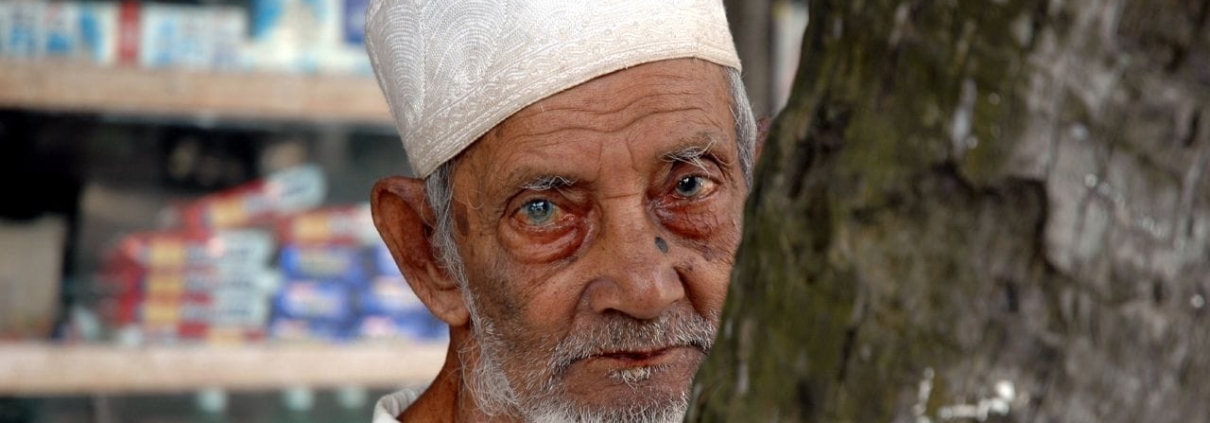Can I Give Something with the Condition That I Have the Right to Use It Until I Die?
Hanafi Fiqh
Answered by Shaykh Umer Mian
Question: Assalamu alaykum
I live in a non-muslim country . Is it permissible for somebody to give their children their share of property (Hibah) during their lifetime and even making the children take possession (Qabd) of that, BUT with the CONDITION that the parent will enjoy that property’s (house/land) benefits as long as they are alive?
Answer: Wa alaikum as-salam wa rahmatullahi wa barakatuhu
Short answer:
What you have described is giving a gift (hibah) with a certain stipulated condition, i.e. right of the gift-giver to continue to utilize the gifted property. Such a condition contradicts the rights of ownership and therefore the condition is invalid and non-enforceable, even though the gift itself remains valid. Therefore, after taking possession, the recipient has full right to do what he or she wishes with the property.
Detailed answer:
The following rulings are relevant to your situation:
1) During one’s lifetime, a person is free to give a gift (hibah) to anyone else in any amount. The only restriction comes when a person experiences terminal illness (i.e. an illness from which recovery is unlikely and death is expected). At that time, all gifts (hibah) are considered bequests (wasiyyah) and are subject to the relevant restrictions related to bequests.
2) A gift (hibah) is completed by offer and acceptance followed by the recipient taking possession (qabd) of the gift. After taking of possession (qabd), ownership transfers to the recipient.
3) Ownership entails the right to dispose of one’s property as one wishes. With regards to real estate, this means the new owner has the unrestricted right to utilize, sell, rent out, or gift the property.
4) At the time of gifting, any stipulated condition which contradicts the rights of ownership will be deemed an invalid condition (shart faasid).
5) An invalid condition (shart faasid) does not invalidate a gift (hibah). Rather, the gift will remain valid (assuming offer, acceptance, and taking of possesion have been completed) and only the stipulated condition will be considered invalid.
Therefore, based on all of the above, the answer to your question is as follows:
If a parent gives a gift to his or her child with the condition that the parent has the right to utilize the property, the gift itself is valid and ownership transfers to the child as soon as taking possession (qabd) occurs. However, the stipulated condition is invalid. At most, the stipulated condition can be considered a (non-enforceable) promise. Hence, it would be preferable for the child to fulfill the promise and allow the parent to utilize the property as long as the parent is living. This would also fall under the category of goodness to one’s parents (birr al-walidayn), which is highly praiseworthy in Islam. However, as stated, the condition is invalid and therefore not enforceable in an Islamic court. The property belongs to the child and he can do with it what he wishes.
Note: the above ruling applies regardless of the gift-giver and the recipient, i.e. it’s not specific to gifts given by parents to their children, although that was the context of the question asked.
Note also: If the gift-giver conditioned the gift with a certain time period, e.g. he says, “I gift you my land after my death,” then this gifting is invalid. Ownership will not transfer to the recipient. Such a contract is known in the Sacred Law as “ruqbaa,” and the Messenger of Allah (sallAllahu alaihi alaihi wa sallam) explicitly prohibited it and declared it invalid (hadith recorded by Nisa’i, Abu Dawud, and Ahmad).
Sources: Murshid al-Hayaran fi Mu’amalat al-Insan, Durar al-Hukkam Sharh Majallah al-Ahkam
Arabic source texts are below.
من “مرشد الحيران”:
من “درر الحكام في شرح مجلة الأحكام”:
( الْمَادَّةُ 83 ) يَلْزَمُ مُرَاعَاةُ الشَّرْطِ بِقَدْرِ الْإِمْكَانِ .
…
يُوجَدُ عُقُودٌ تَصِحُّ مَعَ الشَّرْطِ الْفَاسِدِ أَيْ الَّذِي لَيْسَ مِنْ مُقْتَضَيَاتِ الْعَقْدِ وَيَكُونُ غَيْرُ مُلَائِمٍ لَهُ ، وَيَكُونُ الشَّرْطُ لَغْوًا وَغَيْرَ مُعْتَبَرٍ وَهِيَ : ( 1 ) الْوَكَالَةُ ( 2 ) الْقَرْضُ ( 3 ) الْهِبَةُ ( 4 ) الصَّدَقَةُ ( 5 ) الرَّهْنُ ( 6 ) الْإِيصَاءُ ( 7 ) الْإِقَالَةُ ( 8 ) حَجْرُ الْمَأْذُونِ .
…
وَقُصَارَى الْقَوْلِ أَنَّ الشُّرُوطَ الَّتِي لَا تَكُونُ مِنْ مُقْتَضَيَاتِ الْعَقْدِ إذَا وَقَعَتْ فِي أَحَدِ الْعُقُودِ الَّتِي سَبَقَ ذِكْرُهَا تَكُونُ الْعُقُودُ صَحِيحَةً وَالشُّرُوطُ بِمَا أَنَّهَا مُخَالِفَةٌ لِلشَّرْعِ الشَّرِيفِ تَكُونُ لَغْوًا فَلَا تَجِبُ مُرَاعَاتُهَا .
…
( الْمَادَّةُ 854 ) – ( الْهِبَةُ الْمُضَافَةُ لَيْسَتْ بِصَحِيحَةٍ ، مَثَلًا لَوْ قَالَ : وَهَبْتُك الشَّيْءَ الْفُلَانِيَّ اعْتِبَارًا مِنْ رَأْسِ الشَّهْرِ الْآتِي لَا تَصِحُّ الْهِبَةُ ) .
الْهِبَةُ الْمُضَافَةُ لَيْسَتْ بِصَحِيحَةٍ أَيْ إذَا وَهَبَ أَحَدٌ شَيْئًا اعْتِبَارًا مِنْ وَقْتٍ سَيَأْتِي غَيْرُ صَحِيحَةٍ ؛ لِأَنَّهُ كَمَا صَارَ أَيْضًا فِي شَرْحِ الْمَادَّةِ ( 82 ) لَا تَصِحُّ عَلَى الْإِطْلَاقِ إضَافَةُ التَّمْلِيكِ وَتَعْلِيقُهَا بِشَرْطٍ .
مَثَلًا : لَوْ قَالَ : وَهَبْتُك الشَّيْءَ الْفُلَانِيَّ اعْتِبَارًا مِنْ رَأْسِ الشَّهْرِ الْآتِي أَوْ اعْتِبَارًا مِنْ غَدٍ ، وَقَالَ الْمَوْهُوبُ لَهُ : قَبِلْت ، أَيْضًا لَا تَصِحُّ الْهِبَةُ .
وَكَذَلِكَ الرُّقْبَى لَيْسَتْ صَحِيحَةً لِأَنَّهَا هِبَةٌ مُضَافَةٌ أَيْضًا ( الطَّحْطَاوِيُّ ، الدُّرَرُ ) .
الرُّقْبَى ، هِيَ تَمْلِيكُ أَحَدٍ مَالَهُ لِآخَرَ بَعْدَ وَفَاتِهِ وَيَكُونُ ذَلِكَ تَمْلِيكٌ مُضَافًا إلَى مَا بَعْدَ مَوْتِ ذَلِكَ الشَّخْصِ .
وَالرُّقْبَى بِمَعْنَى الِانْتِظَارِ مَأْخُوذَةٌ مِنْ الِارْتِقَابِ ؛ لِأَنَّ الْمَوْهُوبَ لَهُ يَنْتَظِرُ وَيَرْتَقِبُ وَفَاةَ الْوَاهِبِ ( الزَّيْلَعِيّ ) .
يَعْنِي كَأَنْ يَقُولَ أَحَدٌ لِآخَرَ : إذَا تُوُفِّيتُ قَبْلَكَ فَلْيَكُنْ هَذَا الْمَالُ لَك ، وَإِذَا تُوُفِّيتَ قَبْلِي فَلْيَبْقَ لِي .
كَأَنْ يَنْتَظِرُ كُلٌّ مِنْهُمَا مَوْتَ الْآخَرِ ، وَلَا يَمْلِكُ الْمَوْهُوبُ لَهُ الْمَالَ الْمَوْهُوبَ عِنْدَ الطَّرَفَيْنِ وَقَدْ أَفْتَى بِذَلِكَ عَلِيٌّ أَفَنْدِي أَيْضًا أَوْ مَعْنَاهَا رَقَبَةُ دَارِي لَك وَذَلِكَ جَائِزٌ وَلَكِنْ لَمَّا احْتَمَلَ الْأَمْرَيْنِ لَمْ تَثْبُتْ الْهِبَةُ بِالشَّكِّ فَتَكُونُ عَارِيَّةً ( مَجْمَعُ الْأَنْهُرِ مُلَخَّصًا ) .
…
قَالَ الطَّحْطَاوِيُّ : الْهِبَةُ لِلْوَلَدِ الْكَبِيرِ لَا تَتِمُّ إلَّا بِقَبْضِهِ وَلَوْ كَانَ فِي عِيَالٍ
Wassalam,
[Shaykh] Umer Mian
